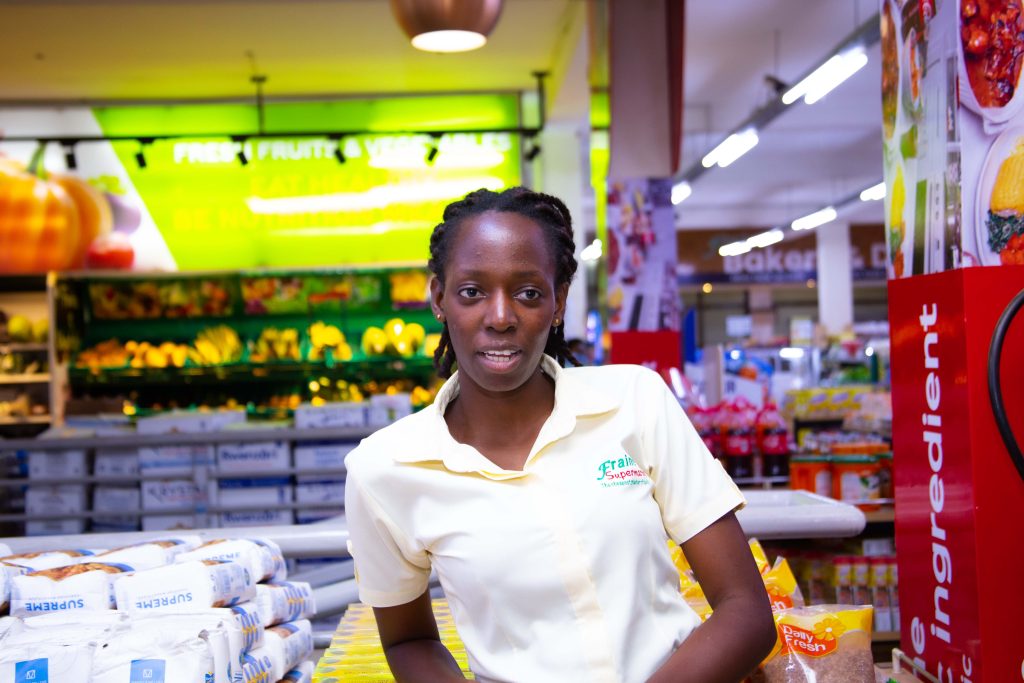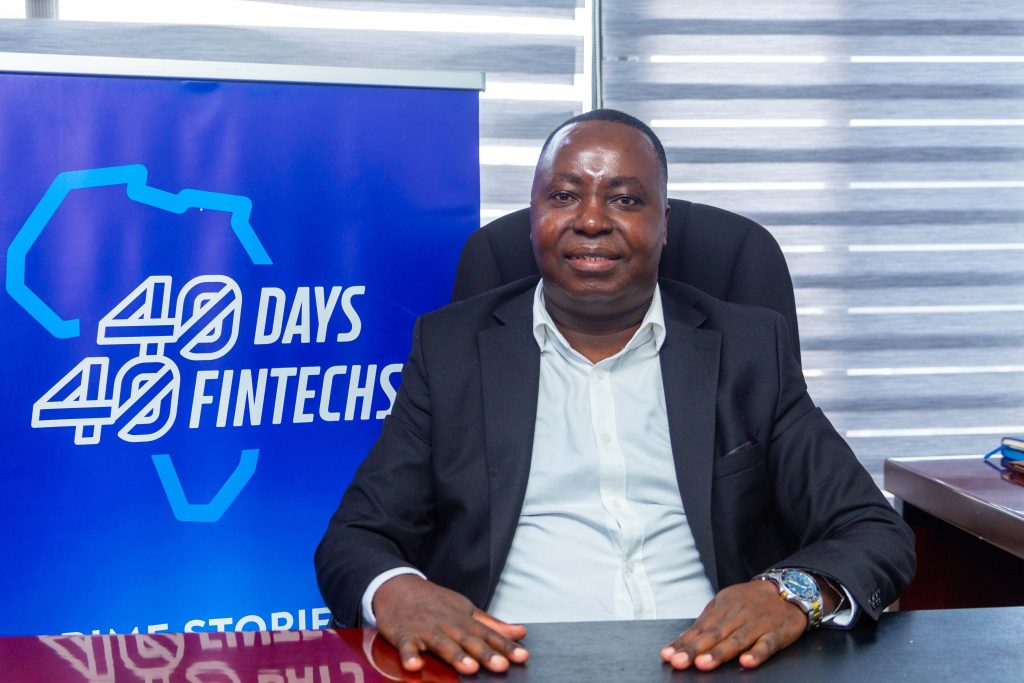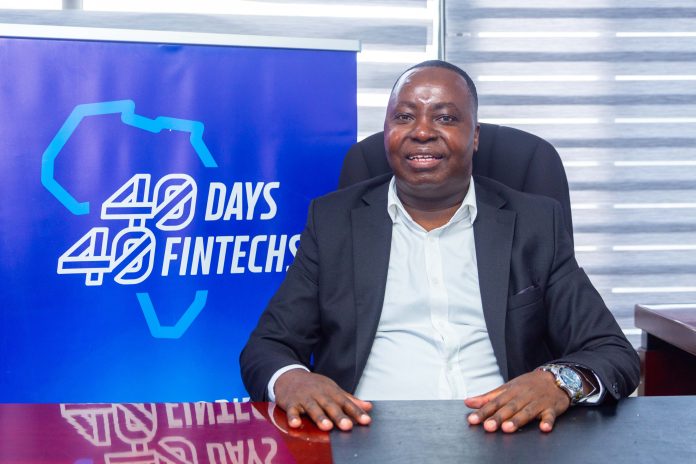Brenda Sekabembe cannot forget the day when a staff member at her company – Bake for Me, ran off with the company phone along with all the money on its mobile money account. The staffer was never found. The phone was not found. The money was never recovered.
But it was amid this adversity that Ssekabembe was introduced to another life-changing solution – Airtel Money Pay.
“We were trying to find solutions and we were told to try Airtel Money Pay, because with this service, as soon as the money hits our phones, it is sent directly to our account,” she says.
“The fact that the money goes straight to the bank, we don’t have to worry about it being stolen. Sometimes, your staff could even be part of the racket to steal the money. Airtel Money Pay brings a safer and more convenient process where you receive a message on your phone that money has been banked onto your account.”
Ssekabembe adds that the biggest advantage is the fact that, unlike ordinary mobile money accounts, Airtel Money Pay has no transaction limits.

“We now can receive as much money as we want and we also don’t get to worry about exceeding any transaction limits,” she says.
The charge is also not big compared to the risk involved in dealing with cash transactions.
“You pay EFT charges for the bank and this is okay with us. This is about Shs 3,500 for a day but it is small when you compare it with the risk that you would have undertaken if you decided to carry the money physically to the bank,” she says.
Further, Linda Akatuhurira, the Head Cashier at Fraine Supermarket, Ntinda notes that Airtel Money Pay has transformed their payments collection experience and significantly reduced accounting challenges.
“Airtel Money Pay has been really good because it has been aiding customers on paying promptly and cashless. We haven’t had any reconciliation issues because Airtel Money Pay reports come in instantly which is a win-win on our side,” Akatuhirira says, adding;
“We have nonetheless faced network challenges mainly over the weekends. Maybe because of high traffic during the weekends.”

Payments Revolution.
According to Japhet Aritho, the managing director of Airtel Mobile Commerce Uganda Limited (Airtel Money), Airtel Money Pay was introduced to transform the traditional mobile money business which was purely a money transfer business where a customer would just walk to an agent to deposit or send money to another person.
“Over time, we have discovered that the market is shifting. If you look at the payment landscape – foundationally, it was domiciled by cash in the country, and very few people who were privileged to have bank accounts used to have cards like Visa or Mastercard. Most of our traders are not in that formalized structure and the Airtel Money Pay is simply a means of enabling all our customers to conveniently pay for goods and services to a trader or enabling businesses to receive payment digitally from their customers,” he adds.
Aritho notes that everybody is a beneficiary starting from customers because they no longer need to cash out or risk their money in their pockets. Aritho notes that transactions worth more than Shs 700bn were completed via Airtel Money Pay in one year.
“For me, this value is expected to continue growing. In terms of unique users like people paying to businesses, if I look at their [individual] totals, it is close to Shs 2.4 million. This gives us hope,” he explains.
Aritho further adds that close to 40,000 businesses in Uganda are accepting payments via Airtel Money, which is a great sign for the shift to a cashless economy.
“If I look at the micro merchants – a product launched less than one year ago – we are already talking about 600,000 traders that have adopted the Airtel Money Pay,” he says.
Aritho acknowledges the fact that most consumers still believe in physical cash – both at the customer and business levels. Changing this behaviour from cash to cashless is always a very big challenge.

“In a market where we have more than 600,000 merchants where payments are accepted, why would a customer cash out and then pay a merchant when they can conveniently have money in their wallet and pay this merchant digitally? The behavioural change on adoption still requires massive sensitization,” he says.
HiPipo revolution.
Aritho extends credit to HiPipo, the organisers of the 40 Days 40 FinTechs initiative, for bringing industry players together to discuss and understand where the industry is going. This is in addition to understanding the problems that they face and the possible partnerships.
“I can assure you and comment openly that Open APIs in Airtel Money would not be a reality today if not for the 40 Days 40 FinTechs platform. In last year’s event, we picked that as a challenge because everybody was talking about making the platform open. We have been able to do that and a month ago, we were able to bring to the public and launch – we actually have exposed like 10 Open APIs but people think it is one – which enables businesses to be digitized. I give HiPipo credit. What you are doing in this country is priceless,” he said.
Airtel Money is the 39th participant in this year’s 40 Days 40 FinTechs initiative presented by HiPipo in partnership with Level One Project, Mojaloop Foundation, INFITX, Cyberplc Academy, Ideation Corner, and Crosslake Technologies with generous support from the Bill and Melinda Gates Foundation.
Innocent Kawooya, CEO of HiPipo, expressed his gratitude towards Airtel Money for their consistent engagement and their efforts in fostering an inclusive environment within the FinTech industry. “We deeply appreciate the involvement of prominent FinTechs like Airtel Money in this initiative. This year, our focus is on enhancing user experiences, and it’s encouraging to see that Airtel Money is making its APIs accessible to the public. This is certainly a significant stride towards the right direction,” Kawooya said.




